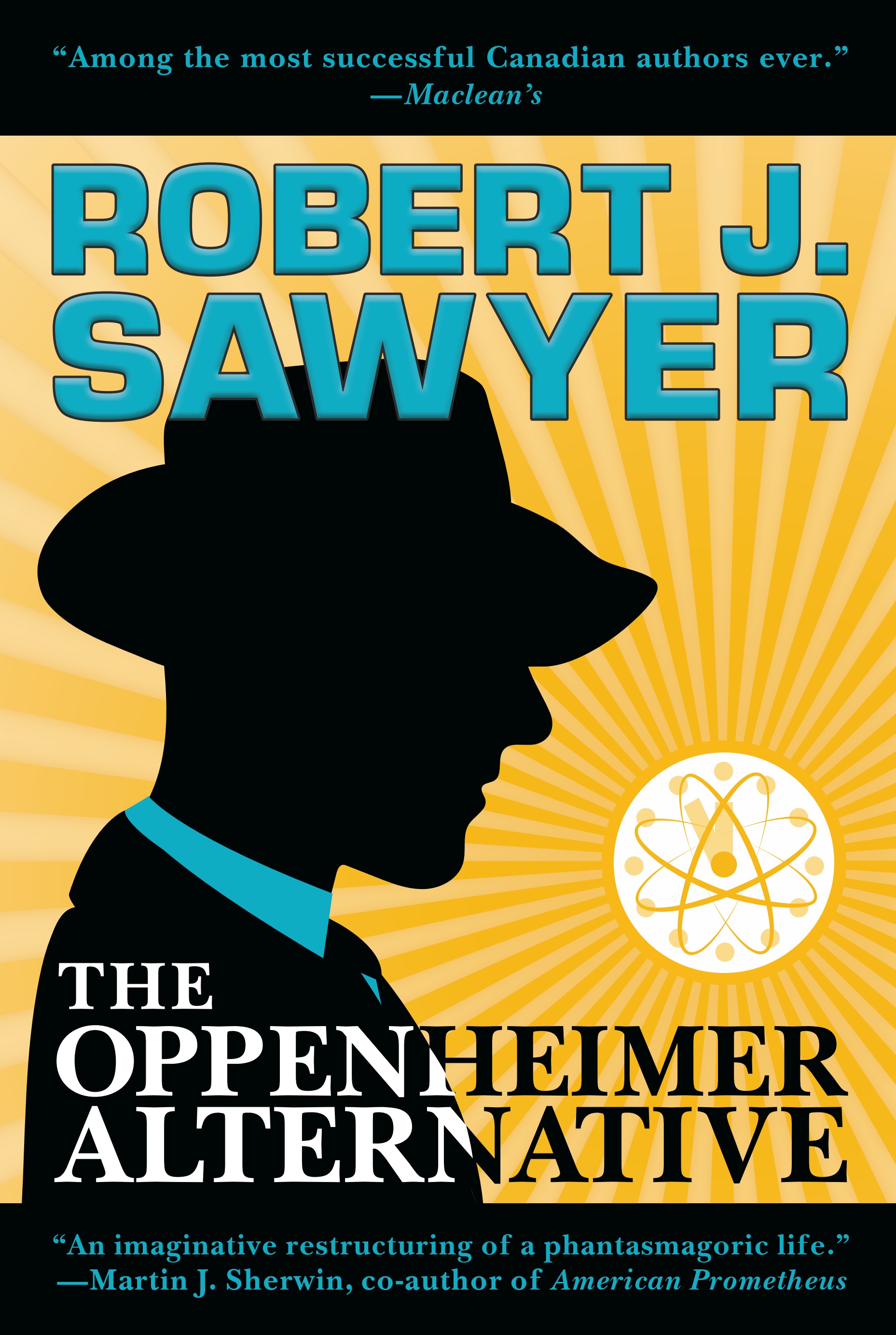78 years ago today: Chicago Pile 1
by Rob - December 2nd, 2020.Filed under: Milestones, Tube Alloys.

Seventy-eight years ago today, the world’s first controlled nuclear chain reaction was achieved at the University of Chicago. Here’s how I dramatized that event in my 2020 novel The Oppenheimer Alternative:
“Jim, you’ll be interested to know that the Italian navigator has just landed in the New World.”
It was code, of course: the Italian navigator was Leo Szilard’s colleague Enrico Fermi, who had led today’s successful experiment. After months of labor, Fermi’s team had created that which Szilard himself had been the first to envision nine years previously: a controlled nuclear chain reaction. This afternoon, the world’s first atomic reactor had run for twenty-eight minutes — the first, that is, unless Nazi physicists had beaten them to the punch.
Szilard stood near his boss, Arthur Holly Compton, in the latter’s office at the University of Chicago. Arthur was on the phone with James Conant, chairman of the National Defense Research Committee, the organization in charge of secret war technology for the United States. Conant must have asked how the natives were because Arthur’s reply was, “Very friendly.”
Silence while Arthur listened for a moment. “No,” he said into the mouthpiece, “I suspect he’s gone … back to port.” A pause. “Yes, he’s here; let me put him on.” He handed Szilard the black handset. Never one for formalities, Leo said, “Hello, Jim.” His Hungarian accent made the name sound a bit like “Yim.”
“Congratulations, Doctor!” The voice was warm although there was much static crackling behind it. “None of this would ever have happened without you.”
Szilard rubbed his forehead with his free hand and said, because he knew it was what he was supposed to say, “Thank you,” and then he handed the phone back to Arthur.
Leo liked to think either in his bathtub — he often soaked for hours — or quite literally on his feet. He excused himself and headed out into the cold evening air while Arthur went back to his oblique conversation. As Leo ambled across the campus, he passed many students, some clutching textbooks, a few holding hands, and he felt twinges of guilt. If something had gone wrong today, all these young people at the beginnings of their lives, along with, quite possibly, almost everyone else in Chicago, could easily have been killed.
Leo’s breath blossomed into clouds in front of him. He hadn’t had a destination in mind, but his feet brought him across the width of Stagg football field. There’d been snow earlier in the week that had melted, leaving the brown grass dry. He made his way toward the concrete rows of angled seating that ran along the west side. The brick structure beneath these bleachers housed various athletic facilities; Leo greeted the guards at the north end and headed into the doubles squash court that had been their experimental working space.
A short figure with a receding hairline and an oblong face was looking down from the court’s spectator gallery at the giant cube of graphite blocks. The other scientists, doubtless in a mixture of elation and exhaustion, had all left, but Enrico Fermi leaned on the railing, just staring, apparently lost in thought.
The beast below was hibernating, all fourteen cadmium control rods having been shoved back in, picas into the hulking body of el toro.
Leo approached and solemnly offered his hand; Enrico took it. Their names had already been linked forever in history — or would be, once the security was lifted — thanks to the letter to President Roosevelt that Leo had drafted three years ago. That letter, signed by Einstein himself, had begun:
Some recent work by E. Fermi and L. Szilard, which has been communicated to me in manuscript, leads me to expect that the element uranium may be turned into a new and important source of energy in the immediate future.“Well, we did it,” said Enrico, with his Italian accent. But this was only the beginning, and they both knew that. The Einstein letter had gone on to say:
“Yes,” Leo replied, “we did.” He let go of Enrico’s hand and shook his head slowly, looking at their creation below. “This will go down as a black day for mankind.”This phenomenon would also lead to the construction of bombs, and it is conceivable — though much less certain — that extremely powerful bombs of a new type may thus be constructed.
Robert J. Sawyer online:
Website • Patreon • Facebook • Twitter • Email

